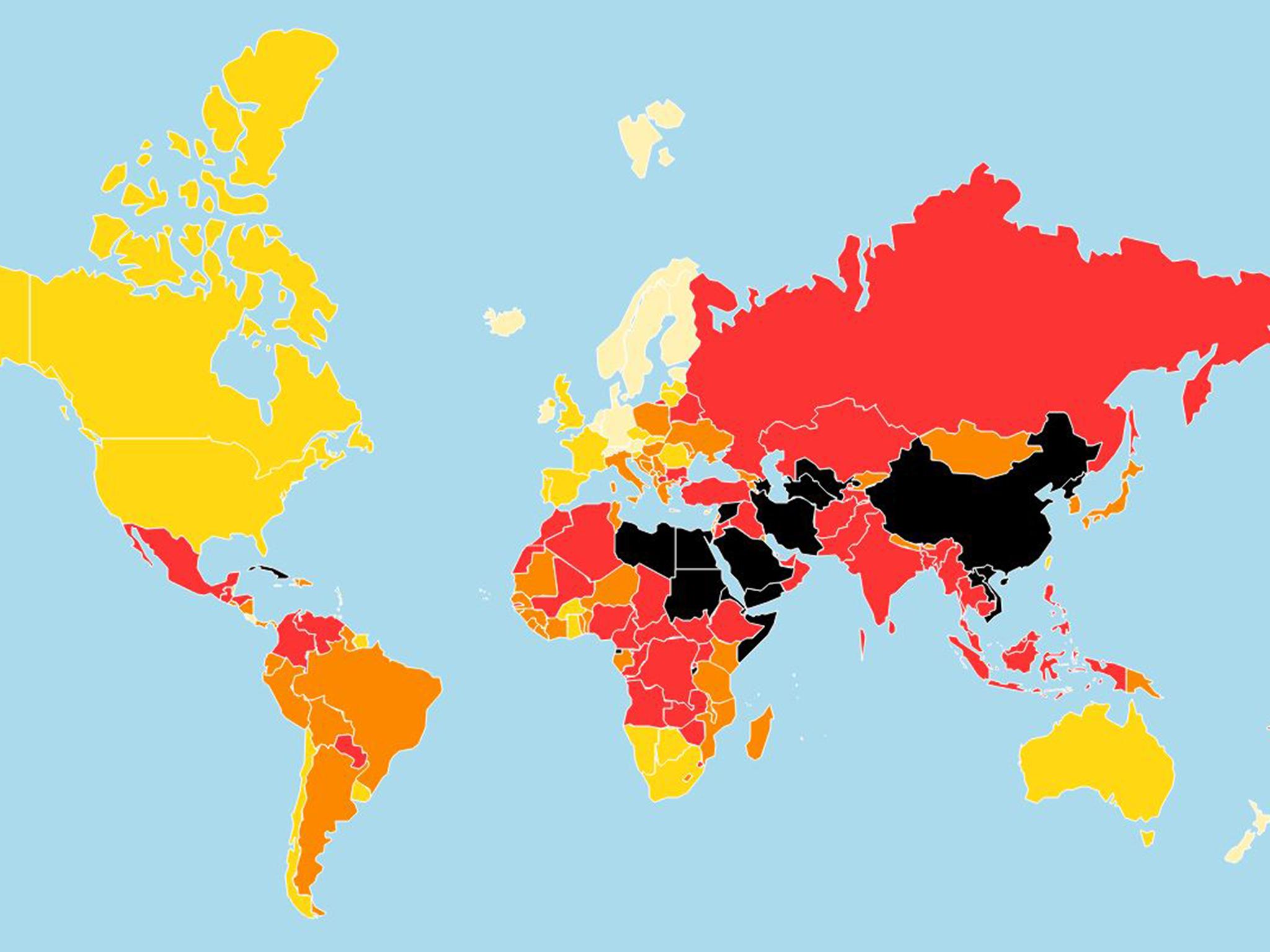'Worrying trend' of freedom of the press in the UK as country ranks 40 in latest Reporters Without Borders index
'We have reached the age of post-truth, propaganda, suppression of freedoms - especially in democracies'

Your support helps us to tell the story
From reproductive rights to climate change to Big Tech, The Independent is on the ground when the story is developing. Whether it's investigating the financials of Elon Musk's pro-Trump PAC or producing our latest documentary, 'The A Word', which shines a light on the American women fighting for reproductive rights, we know how important it is to parse out the facts from the messaging.
At such a critical moment in US history, we need reporters on the ground. Your donation allows us to keep sending journalists to speak to both sides of the story.
The Independent is trusted by Americans across the entire political spectrum. And unlike many other quality news outlets, we choose not to lock Americans out of our reporting and analysis with paywalls. We believe quality journalism should be available to everyone, paid for by those who can afford it.
Your support makes all the difference.A "heavy handed approach" often in the name of national security has seen the UK slip in the rankings of countries with the world's freest press, according to a new report by Reporters Without Borders.
Scandinavian countries have the freest press in the world, the non governmental organisation said in its World Press Freedom Index 2017, while the UK is slipping onto "a worrying trend", it said.
It added that only 16 countries in the world were rated as "good" this year.
At the top of the list, Norway, Sweden, Finland and Denmark lead the way followed by the Netherlands, Costa Rica, Switzerland, Jamaica, Belgium and Iceland.
Austria, Estonia, New Zealand, Ireland and Germany were also among the countries which obtained a "good" rating.
The state of the UK's press was deemed "satisfactory" and Britain ranked 40 out of 180 countries after slipping two places from last year's index and now ranking after Australia, Namibia, Ghana, South Africa, Lithuania and France.
But Reporters Without Borders warned of "a worrying trend" in the UK in regards to the freedom of the press.
The NGO said "a heavy-handed approach... often in the name of national security" has resulted in the UK slipping down the annual ranking.
It added the Investigatory Powers Act which was adopted by Parliament last November had "insufficient protection mechanisms for whitleblowers, journalists and their sources, posing a serious threat to investigative journalism".
Reporters Without Borders' analysis also highlighted the new Espionage Act which "would make it easy to classify journalists as 'spies' and jail them for up to 14 years for simply obtaining leaked information".
On the contrary, Norway, which topped this year's ranking, was described by the NGO as "faultless".
It notes "the media are free and journalists are not subject to censorship of political pressure. Violence against journalists and media is rare, although some have been threatened by Islamist fundamentalists in recent years."
The United States was ranked 43rd.
In Italy, Poland, Ukraine and Greece, Reporters Without Borders identified a "noticeable problem" with the levels of freedom of information.
The report indicates there is a "difficult situation" in Russia, India, Turkey, Mexico and a number of African countries including Algeria, Nigeria, Ethiopia and the Democratic Republic of Congo.
A handful of countries, including Egypt, Libya, Yemen, Saudi Arabia, Vietnam and China were identified as having a "very serious situation" regarding freedom of the press with Eritrea and North Korea scoring the worst in the world.
Reporters Without Borders said democracies were increasingly seeing violations of freedom of information, which were traditionally attributed to authoritian regimes and dictatorships.
"Once taken for granted, media freedom is proving to be increasingly fragile in democracies as well. In sickening statements, draconian laws, conflicts of interest and event the use of physical violence, democratic governments are trampling on a freedom that should, in principle, be one of their leading performance indicators," it said in a statement.
The index, it added, "reflects a world in which attacks on the media have become commonplace and strongmen are on the rise. We have reached the age of post-truth, propaganda, suppression of freedoms - especially in democracies".
The World Press Freedom Index is published every year by Reporters Without Borders since 2002.
The index acts as a point of reference for press freedom around the world and is referred to by global institutions such as the UN and the World Bank. However, it is not an indicator of the quality of journalism in each country.
The criteria which make up the index include media pluralism and independence, the legislative framework and the safety of journalists in each country.
Join our commenting forum
Join thought-provoking conversations, follow other Independent readers and see their replies
Comments